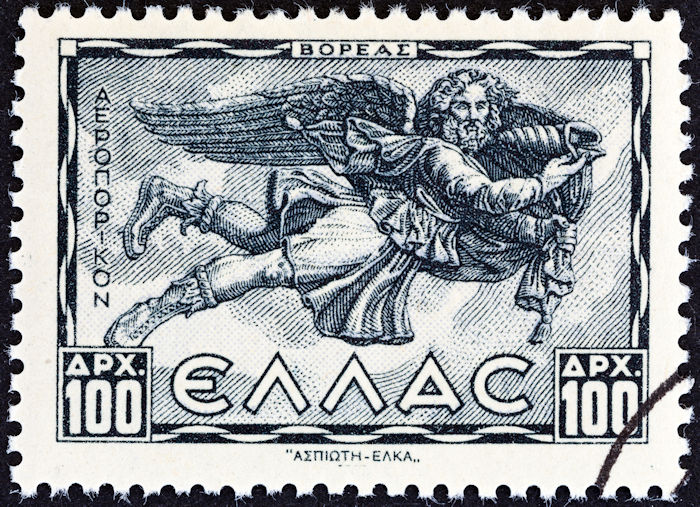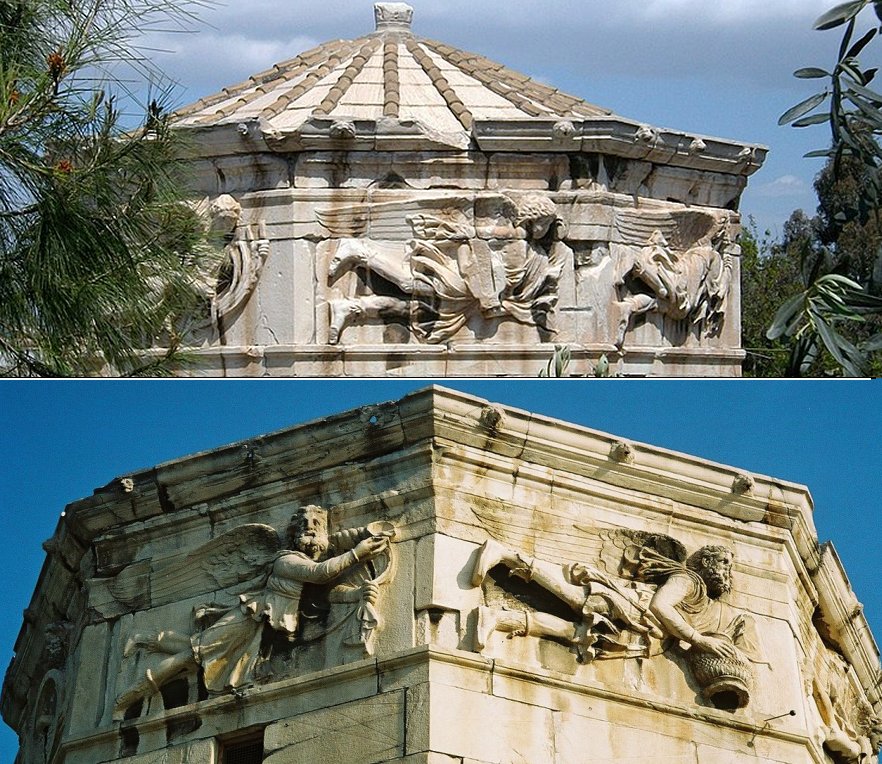Boreas – Mighty North Wind God In Greek Mythology
A. Sutherland - AncientPages.com - In Greek mythology, the Anemoi are the personifications of the winds, and their origin indicates a connection with the elemental forces of nature.
They are the sons of Titanides Eos, the goddess of the dawn, and Titan Astraeus (Astrajos), the god of the starry night.
Credit: Adobe Stock - Lefteris Papaulakis
One is Boreas (N)), the god of the north wind, which brings the cold winter. Others are Apeliotes (E), Kaikias (NE), Notus (S), Eurus (SE), Lips (SW), Zephyrus (W), and Skiron (NW).
Vicious and extremely strong, the Boreas (his Roman is Aquilo) had his abode in the Thracian mountains and brought the wintry north wind. Herodotus and Pliny the Elder (AD 23–79), ancient Roman nobleman, scientist, historian, and author of Naturalis Historia, describe this northern land as Hyperborea "Beyond the North Wind," where people experienced complete happiness and had extraordinarily long lifespans.
Usually flying in a chariot with swift horses (or wings) across the sky, Boreas was highly honored by the great city of Athens in the 5th century BC and even credited with destroying Persian ships with his winter winds.
It occurred when the city of Athens was threatened by Xerxes, the son of Darius the Great and the fourth King of Kings of the Achaemenid Empire, ruling from 486 to 465 BC.
The danger was so close that the people prayed to the mighty Boreas. The deity was then sent tremendous winds to sink 400 Persian ships. Grateful for the god's apparent help, the people of Athens established a cult dedicated to him in 480 BC.
The tower of the winds. Credit: Joanbanjo - CC BY-SA 3.0
A similar event had occurred twelve years earlier, and Herodotus wrote about the incident as follows:
" Now, I cannot say if this was really why the Persians were caught at anchor by the stormwind, but the Athenians are quite positive that, just as Boreas helped them before, so he was responsible for what happened on this occasion also. And when they went home, they built the god a shrine by the River Ilissus."
The river Ilissus plays an essential role in Greek mythology. It is a small river that rises from springs on Mount Hymettus in Attica, the territory of Athens.
The river – 'channeled underground in the first half of the twentieth century - flows southeast and south of Athens's ancient, central, fortified area. Before the diversion of its course, it used to be a tributary of the Cephissus (modern Kifisos) River. Ilissus is featured in tales of the city's legendary past as one of the two major rivers of Athens.
Notably, the banks of the Ilissus were the site of the abduction of Orithiya, daughter of the Athenian king Erechtheus, to Thrace by Boreas, god of the north wind,' wrote Annette Giesecke in her 'Classical Mythology A to Z.'
The Athenians even considered boreas as their close relative by marriage. The god kidnapped Orithyia while gathering flowers by the Ilissus River. Orithyia was an Athenian princess and daughter of Erechtheus, a legendary king and probably also a divinity of Athens.
At first, Boreas tried to plead for her favors, persuading her to marry him. However, when it failed, he wrapped the princess Orithyia up in a cloud, married her, and with her, had had two daughters, Chione, goddess of snow, and Cleopatra (the wife of Phineus) and two sons, the Boreads - Calais and Zetes, both known as the Boreads.
The abduction of Orithyia was widespread in Athens, and his depictions were popular, especially those on the Greek vases showing Boreas as a winged, bearded man in a tunic with shaggy, sometimes frosted, and spiked hair.
Pausanias, a Greek traveler and geographer of the second century AD, wrote that Boreas had snakes instead of feet, though he was usually depicted with winged human feet in art.
Written by – A. Sutherland - AncientPages.com Senior Staff Writer
Updated on March 14, 2023
Copyright © AncientPages.com All rights reserved. This material may not be published, broadcast, rewritten or redistributed in whole or part without the express written permission of AncientPages.com
More From Ancient Pages
-
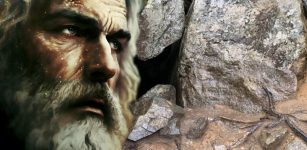 Why Did Sages And Shamans Repeatedly Visit The Mysterious Finnish Pirunkirkko Cave (Devil’s Church)?
Archaeology | Nov 27, 2023
Why Did Sages And Shamans Repeatedly Visit The Mysterious Finnish Pirunkirkko Cave (Devil’s Church)?
Archaeology | Nov 27, 2023 -
 The Phoenicians – And Their Great Experience As Sea Traders
Civilizations | Sep 6, 2015
The Phoenicians – And Their Great Experience As Sea Traders
Civilizations | Sep 6, 2015 -
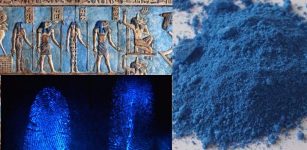 Ancient Egyptian Blue Powder Makes Fingerprints Glow And Will Be Used By Crime Scene Investigators
Ancient Technology | Jun 15, 2017
Ancient Egyptian Blue Powder Makes Fingerprints Glow And Will Be Used By Crime Scene Investigators
Ancient Technology | Jun 15, 2017 -
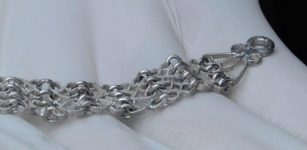 Rare Ancient Precious Artifacts Found In Rusovce, Slovakia
Artifacts | Sep 26, 2015
Rare Ancient Precious Artifacts Found In Rusovce, Slovakia
Artifacts | Sep 26, 2015 -
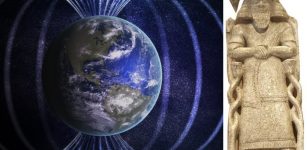 Biblical Event Verified By Study Of Earth’s Magnetic Field?
Archaeology | Jan 4, 2024
Biblical Event Verified By Study Of Earth’s Magnetic Field?
Archaeology | Jan 4, 2024 -
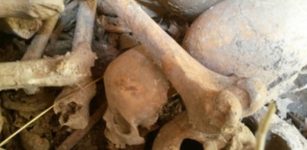 Roman-era mass grave with 60 bodies found in farmer’s field
Civilizations | Aug 27, 2015
Roman-era mass grave with 60 bodies found in farmer’s field
Civilizations | Aug 27, 2015 -
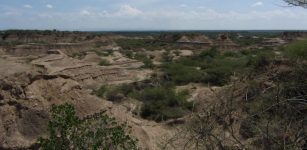 230,000-Year-Old Human Remains Discovered In Eastern Africa – Rewrite Ancient History
Archaeology | Jan 14, 2022
230,000-Year-Old Human Remains Discovered In Eastern Africa – Rewrite Ancient History
Archaeology | Jan 14, 2022 -
 Strange Case Of The Italian Doppelganger – A Tragedy – Part 1
Featured Stories | Oct 14, 2019
Strange Case Of The Italian Doppelganger – A Tragedy – Part 1
Featured Stories | Oct 14, 2019 -
 Huge Mass Grave With Remains Of Pirate Black Sam’s Crew Discovered In North America
Archaeology | Apr 3, 2018
Huge Mass Grave With Remains Of Pirate Black Sam’s Crew Discovered In North America
Archaeology | Apr 3, 2018 -
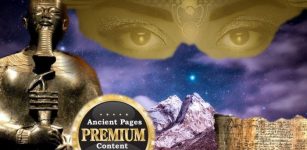 Antediluvian Sacred Tablets And Rare Manuscript Reveal Secret Ancient Egyptian Knowledge
Featured Stories | Apr 13, 2018
Antediluvian Sacred Tablets And Rare Manuscript Reveal Secret Ancient Egyptian Knowledge
Featured Stories | Apr 13, 2018 -
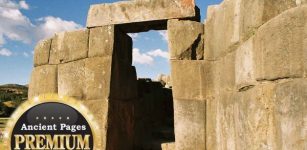 Sacsayhuamán – Was It Built By ‘Demons’ Or Viracocha The Bearded God?
Civilizations | Apr 10, 2014
Sacsayhuamán – Was It Built By ‘Demons’ Or Viracocha The Bearded God?
Civilizations | Apr 10, 2014 -
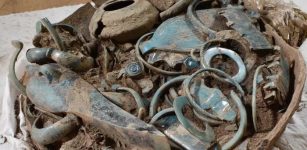 Hundreds Of Exceptional Bronze Age Artifacts Discovered In France Were Probably Offerings
Archaeology | Aug 28, 2021
Hundreds Of Exceptional Bronze Age Artifacts Discovered In France Were Probably Offerings
Archaeology | Aug 28, 2021 -
 Unique Bronze Age Treasure Discovered In Swedish Forest Was A Gift To Norse Gods
Archaeology | Apr 30, 2021
Unique Bronze Age Treasure Discovered In Swedish Forest Was A Gift To Norse Gods
Archaeology | Apr 30, 2021 -
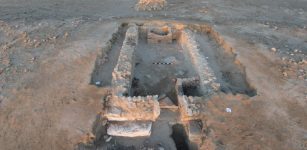 Unusually Arranged Skeletons And Artifacts Found Inside A 1,500-Year-Old Tomb In Berenice Troglodytica, Egypt
News | May 27, 2022
Unusually Arranged Skeletons And Artifacts Found Inside A 1,500-Year-Old Tomb In Berenice Troglodytica, Egypt
News | May 27, 2022 -
 Strange Tooth Raises Unexpected Questions About Human Evolution
Archaeology | Mar 24, 2022
Strange Tooth Raises Unexpected Questions About Human Evolution
Archaeology | Mar 24, 2022 -
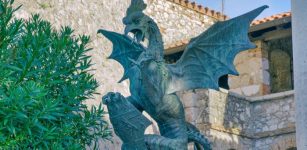 Legendary Basilisk With Deadly Petrifying Stare – King Of The Serpents
Featured Stories | Dec 27, 2021
Legendary Basilisk With Deadly Petrifying Stare – King Of The Serpents
Featured Stories | Dec 27, 2021 -
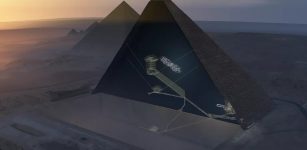 Cosmic Rays Reveal Mysterious Void Inside Great Pyramid – What’s Hiding Inside?
Archaeology | Nov 2, 2017
Cosmic Rays Reveal Mysterious Void Inside Great Pyramid – What’s Hiding Inside?
Archaeology | Nov 2, 2017 -
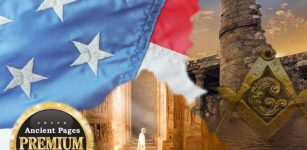 Freemasons Secrets – American Democracy Is Part Of An Ancient Universal Plan – Secret Societies’ Role – Part 3
Civilizations | Jul 14, 2018
Freemasons Secrets – American Democracy Is Part Of An Ancient Universal Plan – Secret Societies’ Role – Part 3
Civilizations | Jul 14, 2018 -
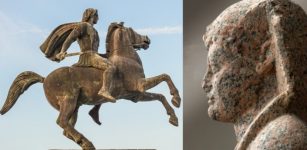 Alexander The Great Was Crowned Pharaoh And Declared Son Of God Amun
Ancient History Facts | Jan 4, 2019
Alexander The Great Was Crowned Pharaoh And Declared Son Of God Amun
Ancient History Facts | Jan 4, 2019 -
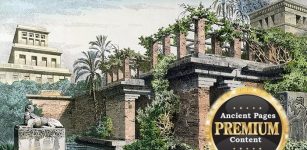 Riddle Of The Hanging Gardens Of Babylon – Highly Advanced Technologies – Part 2
Featured Stories | Jun 11, 2019
Riddle Of The Hanging Gardens Of Babylon – Highly Advanced Technologies – Part 2
Featured Stories | Jun 11, 2019

